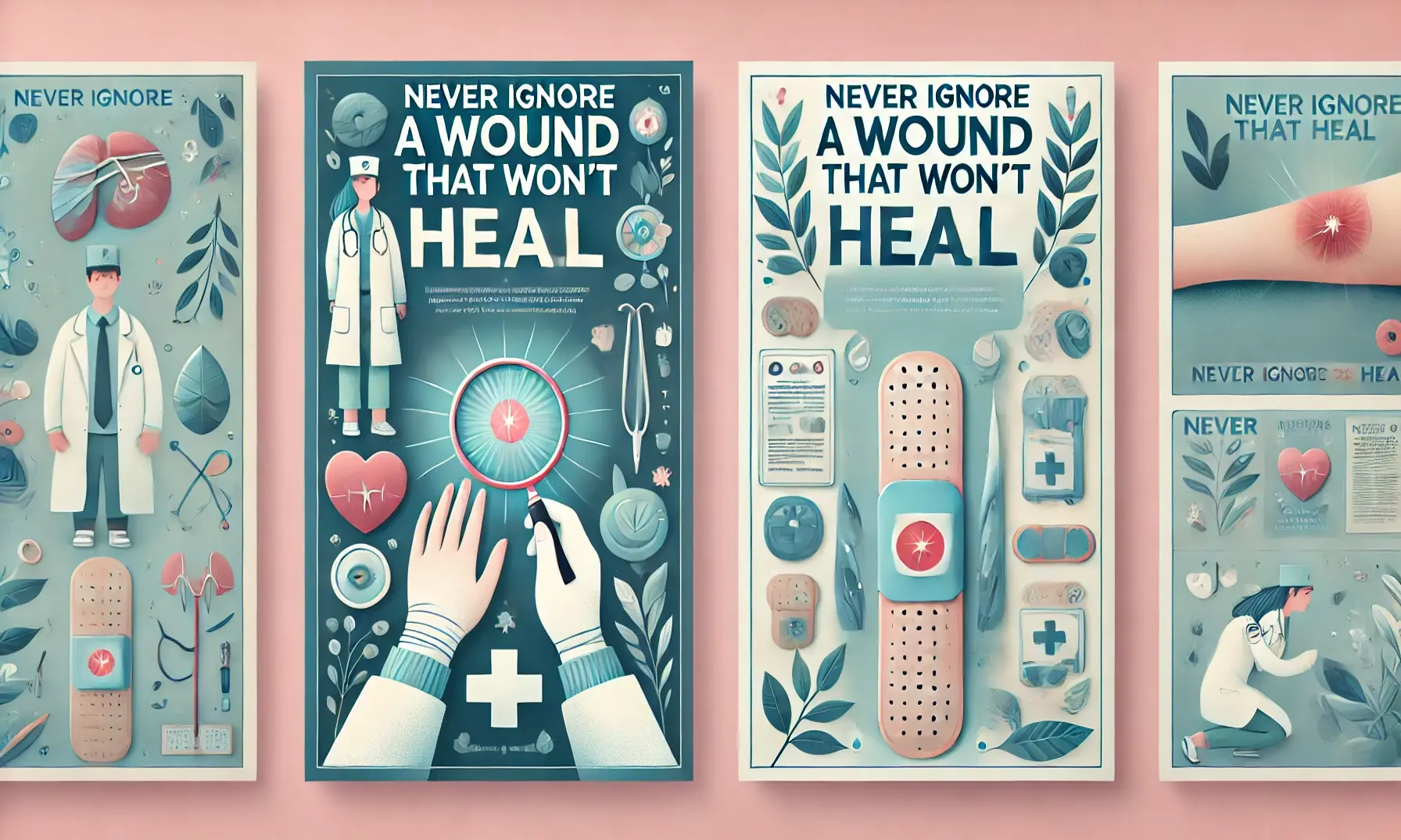Never Ignore a Wound That Won't Heal

What is Wound Healing?
When you get a cut or scrape, your body begins to heal immediately. This process is called wound healing:
- 1. Your body works to stop the bleeding.
- 2. It fights off germs to prevent infection. After that, it starts making new skin to cover the wound.
- 3. It finishes up the repair so your skin is all healed.
Why You Shouldn’t Ignore Wounds That Don’t Heal
If a wound isn’t healing after weeks or months, it might be a sign of a bigger problem like an infection or poor blood flow. Don’t ignore it—see a doctor to avoid more serious issues later
We all get cuts and bruises occasionally, but it's important to pay attention if a wound doesn’t heal. Ignoring it can cause big problems. Let’s look at why caring for wounds correctly is so important.
Understanding Wounds Acute vs. Chronic Wounds
Acute Wounds:These fresh cuts or scrapes usually heal in a few days or weeks.
Chronic Wounds:These wounds don’t heal properly within 4 to 8 weeks. They can stay open, get worse, or just not improve.
Common Types of Chronic Wounds
- 1. Diabetic Ulcers: People with diabetes often get these, especially on their feet. They can be caused by poor blood flow and nerve damage.
- 2. Venous Leg Ulcers: These happen on the legs when blood doesn’t flow well through the veins.
- 3. Pressure Ulcers: Also known as bedsores, occur from staying in one position too long, like when someone is bedridden
- 4. Other Chronic Wounds: These include wounds like arterial ulcers and sores from injuries that won’t heal.
Symptoms of a Non-Healing Wound
Indicators of Complications:
- 1. Redness and Swelling: If the area around the wound is red or puffy.
- 2. Foul Odor: A bad smell can mean there’s an infection.
- 3. Discharge: Any fluid from the wound can be a sign of trouble.
When to Seek Medical Help:
If you see any of these signs, you must see a doctor immediately. They can help prevent the problem from getting worse.
Diagnosis and Comprehensive Care
Diagnostic Approaches:
Doctors will look at the wound and might do some tests to discover why it’s not healing.
Treatment Options:
- 1. Specialized Wound Care: Doctors might use special treatments to help the wound heal.
- 2. Advanced Treatments: Hyperbaric oxygen therapy, which helps in certain cases.
- 3. Managing Underlying Conditions: Treating other health problems that might affect the wound.
Role of a Wound Care Specialist:
These are experts who know a lot about healing wounds. They can give you the best advice and treatment.
Strategies to Prevent Wound Complications:
Proper Wound Care: Keep the wound clean and covered. Change dressings as needed.
Healthy Lifestyle: Eating well and staying active can help your body heal better.
Monitoring and Maintenance:
Check the wound regularly to see if it’s improving. Follow your doctor’s advice and adjust care if needed.
Conclusion
Never ignore a wound that won’t heal. It’s important to get help from a doctor if a wound doesn’t get better quickly. Early treatment can prevent bigger problems and help you heal faster. If you’re unsure about a wound, don’t hesitate to seek medical advice. Taking action now can make a big difference!
Services Inquiry
Contact Information
-
-
-
- Lake Cathie